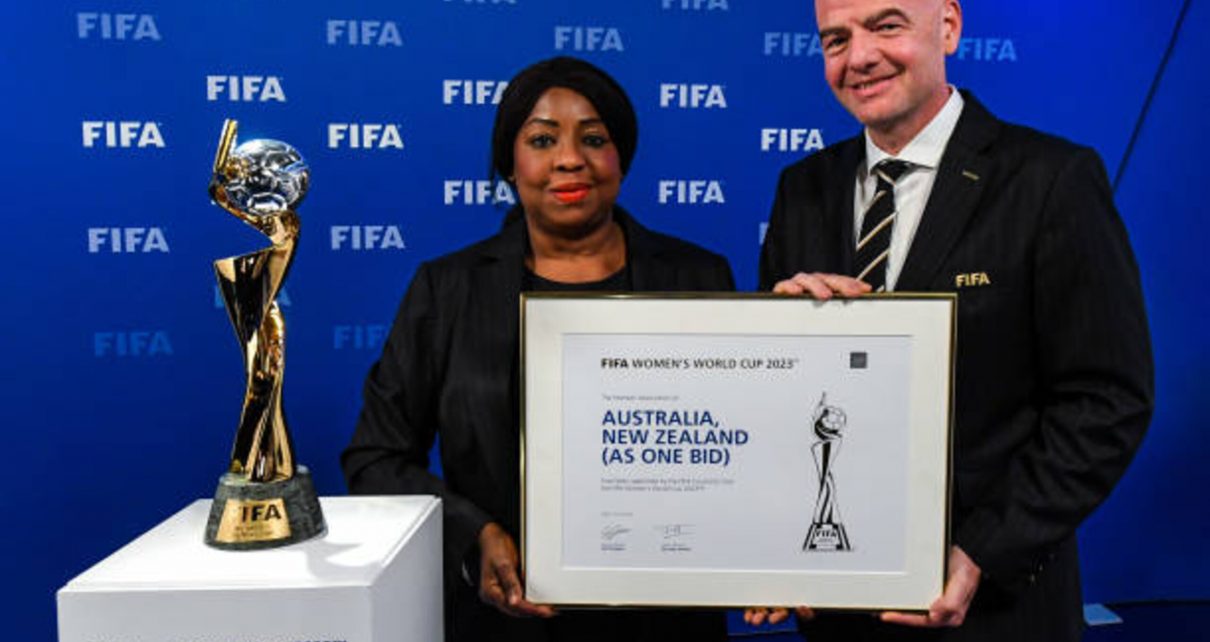FIFA President Gianni Infantino has expressed his belief that achieving equal pay between the Men’s and Women’s World Cups would serve as a mere “symbol” without the accomplishment of additional developmental goals for women’s football.
In the upcoming final, England is set to face Spain with an elevated prize pool of $110 million, a significant increase from the offering at the 2019 Women’s World Cup in France, which was just a third of the current amount. Nevertheless, this remains markedly lower than the $440 million allocated for the 2022 men’s tournament in Qatar.
Infantino had previously outlined ambitions to achieve prize parity by the 2026 and 2027 World Cups. However, just two days before the conclusion of the ninth edition of the women’s showcase, he challenged stakeholders to go beyond and do more.
Infantino remarked, “Let us truly strive for complete equality. Not solely in terms of World Cup pay, which is a slogan that surfaces periodically. We are already progressing toward equal pay in the World Cup.”
“However, this alone would not address the underlying issues. While it might hold symbolic value, it would not comprehensively address the situation. The World Cup is a one-month event every four years, and it involves only a handful of players out of the numerous players worldwide.”
“We must maintain the momentum and drive for true equality. We must pursue it earnestly, not just superficially.”
A couple of months before the tournament, Infantino had indicated the possibility of not broadcasting the World Cup in Europe’s major countries, citing unsatisfactory offers from broadcasters that he deemed “very disappointing and unacceptable.” Ultimately, deals were reached and the broadcast proceeded as planned.
In Australia, record-breaking viewership figures were achieved, with a peak audience of 11.5 million people, approximately 46 percent of the population, tuning in to watch the Matildas face England in the semi-final. This match became the most-watched television program in the country since the establishment of the current rating system in 2001.
The UK also saw significant viewership, as 7.3 million individuals watched the same contest on BBC One, marking the highest audience for the World Cup thus far.
Infantino reiterated his stance that broadcasters play a role in achieving the prize parity goal.
The 2023 tournament witnessed an expansion to 32 teams and marked the first time the competition was jointly hosted by multiple countries.
Infantino noted, “While concerns were raised about the cost and revenue generation, suggesting potential need for subsidies, our approach was that if subsidizing was required, we would do so, as it was necessary.”
“Interestingly, this World Cup generated over $570 million in revenue, resulting in a balanced budget. We neither incurred losses nor did we generate the highest income among global sports, second only to the men’s World Cup.”
Initially, skepticism surrounded the decision to include more teams, with concerns that it might accentuate the gap between lower-ranked and well-funded nations. However, the tournament defied expectations, proving to be one of the most fiercely competitive finals on record. It guaranteed a new champion after 2011 titleholders Japan were eliminated in the quarter-finals, followed by the elimination of the United States in the Round of 16.
England, ranked fourth in the world, managed just one goal against tournament debutants Haiti, who were positioned 49 places below them in FIFA’s world rankings.
Morocco, making their debut, advanced alongside Jamaica, who were previously knocked out in the group stage in their sole previous appearance.
Notably, three top-10 teams – Germany, Canada, and Brazil – were eliminated in the group stage, while England’s quarter-final opponents, Colombia, progressed to the last eight for the first time.
Outstanding performances in this World Cup could potentially lead to more lucrative contracts for players, particularly in regions like Europe and the United States.
FIFA’s most recent benchmarking report highlighted the disheartening reality that the average league and club salaries for women globally stand at a mere $14,000.
Infantino emphatically called for a fair remuneration across all leagues and competitions in football, underscoring the importance of showing respect for women and women’s sports. He anticipated an overwhelmingly positive response to such measures.
He asserted, “To pave the way for more success stories like those witnessed in this World Cup, we need to establish more local, continental, and international competitions.”
“We must create an environment within the next four years that enables these players to pursue a professional career in their home countries. This stands as the foremost challenge that lies ahead of us.”


